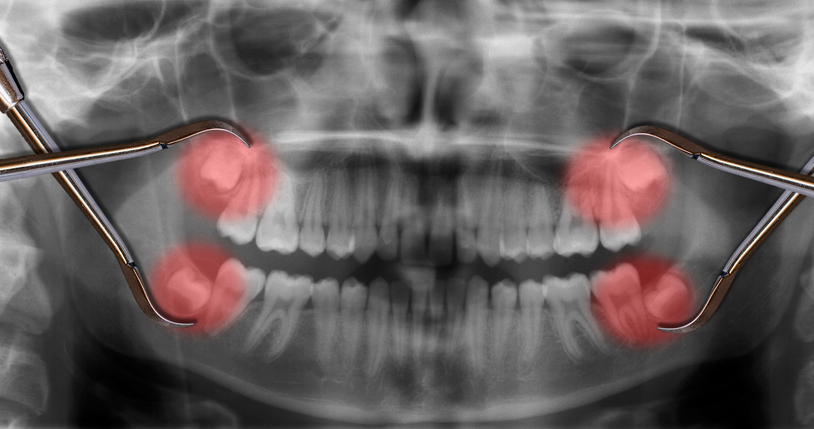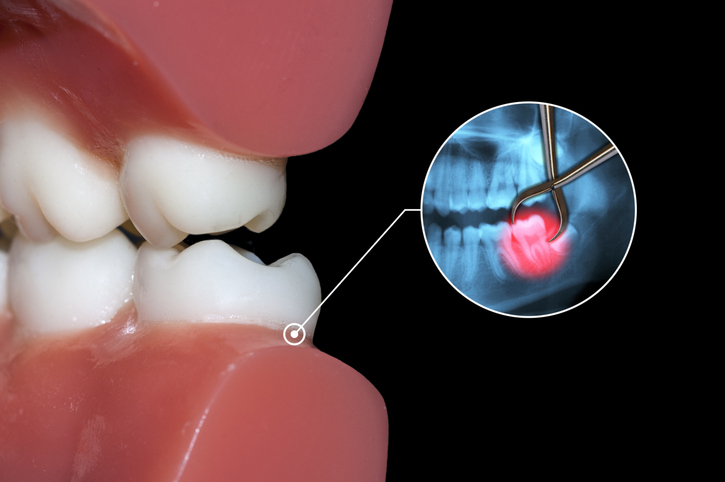The wisdom teeth (or third molars) are the last set of teeth to erupt into the mouth. This usually occurs after your 16th birthday. Typically, there isn’t enough room in your mouth for these four teeth (one on every end) to come in, so they don’t grow into the mouth normally. The affected wisdom teeth are said to be “impacted” and can cause a lot of pain and infections, as well as contribute to tooth decay and gum disease due to difficulty in cleaning that area of your mouth.
Teeth removed before the age of 20 years old have less developed roots, which reduces the risk of complications. As such, the American Dental Association recommends that teens aged between 16 and 19 visit their dentist for wisdom teeth evaluation to determine if extraction is necessary. Sometimes, impacted wisdom teeth may be removed even when they are not causing any problems – this is done to protect you against potential issues in the future.

Why Impacted Teeth Should Be Removed
Impacted teeth may erupt partially or remain trapped within the jawbone and stay below the gum line. If they erupt, they may:
- Grow forward into the adjacent tooth
- Grow backward into the jaw
- Grow perpendicular to the adjacent tooth
Impacted wisdom teeth can cause several problems, including:
- Damage to adjacent teeth
- Repeated gum infections in the surrounding tissue
- Food packing in the area, leading to decay
- Cysts (fluid-filled swellings) forming around the tooth

Surgical Removal Of Wisdom Teeth
Since the tooth is not fully erupted, an impacted wisdom tooth can only be removed surgically. We start the procedure by cutting the gum over the tooth in order to access the condition of the tooth. Afterward, we will have to cut the tooth into 2 or 3 pieces for easy removal. We may also have to remove some of the surrounding bone tissue so no fragments of the tooth remain behind. After wisdom tooth removal, we will restore the gum with stitches that are designed to dissolve and disappear in 2 weeks.
Depending on the difficulty of the procedure, we may use a local anesthetic to numb the area for pain-free tooth extraction and to help you relax or sleep during the procedure if you’re anxious. After the procedure, we will instruct you on how to care for the wound.
Please contact our dental office in Garden Grove to learn more about wisdom tooth extraction, and to discuss your case.
